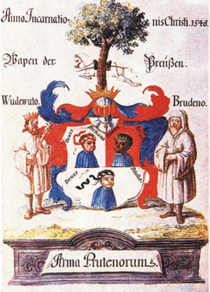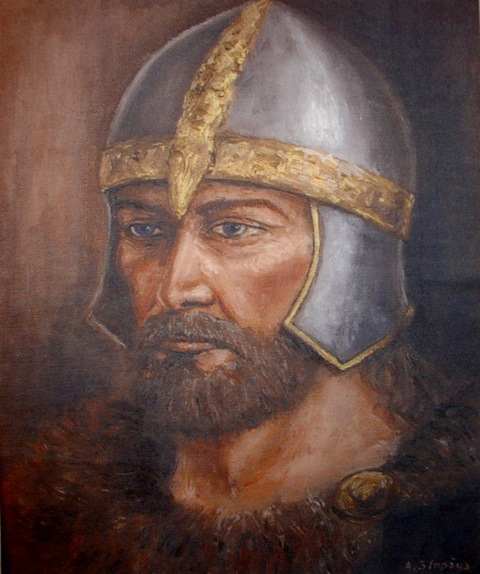
The history of ancient Prusai WHO WERE THE PRUSAI? ARCHEOLOGY COULD PRUSAI BE CHRISTIANS ? Mieszko I Poland THE ARMS AND THE WAY OF FIGHT THE CONQUEST, I, II UPRISING THE III-rd PRUSAI UPRISING The PRUSAI KNIGHTHOOD OPPOSITION What has happened to Prusai? THE GERMANIC ENSLAVEMENTS
The Battle of Grunwald
Culmland Banner The Prusai Maps
PRUSAI
Prusians Heroes Prominent Prusian Where you are, Prusai?
COAT OF ARMS
The Coat of Arms THE COAT OF ARMS PRUS I, II, III Unknown version Prus I,II, III Prus - name and Coat of Arms UNKNOWN COAT OF ARMS EUROPE MONARCHIES
PRUS DESCENDANTS
Pilewski
KURPII
The Kurppii Genesis
THE DISPUTE ABOUT HISTORY
German militarism Tadeusz Mrozinski
CULTURE
About the Prusai language The Prusai language and its sources ART AND PEOPLE Archeology Prusian Babas
PUBLICATIONS
Die Altpreußischen Personennamen Download
Elbling Dictionary
FORUM
FORUM - ARCHIVES
MAIL: PRUS@PRUSOWIE.PL
Counter
Counter
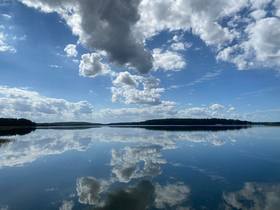
Prominent Prussians
Nicolaus Copernicus, the great astronomer who changed the perception of our world and laid the foundation for today‘s space science, was born on Baltic people land - the Prusai land of the 19th February 1473 in Torun.
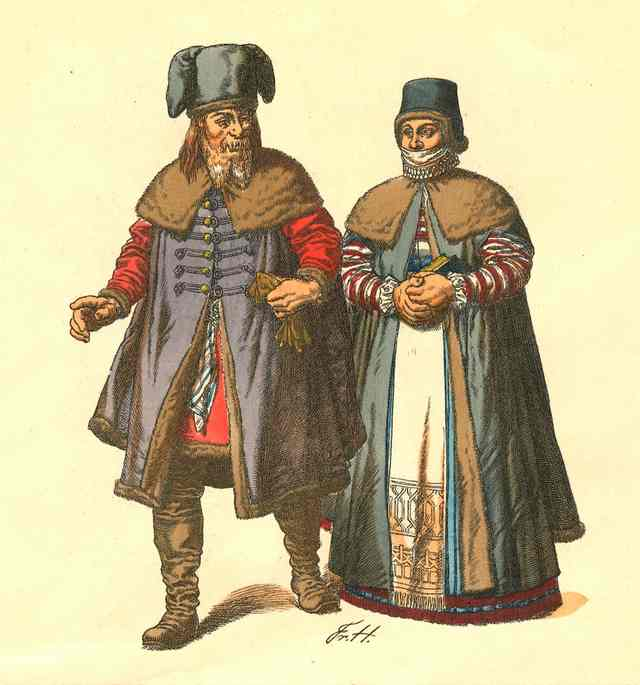
His family came from a wealthy Torun bourgeois class. German nationalism of a bygone era tried to assign him, beyond any doubt, to the nation of the Germanic race. With the fall of the German fascism, so far they left Copernicus in peace.
With regard to the belonging of Copernicus, his orientation as well as the contacts, has been always with the Polish side.
So, it was like that with his parents. Copernicus never showed and did not leave any evidence of German descent. Confirmation of the above, his first education was at university of Sciences in Krakow, as well as its subsequent involvement in Olsztyn, while defending there the castle against the German knights.
But Copernicus was not a Pole. By today‘s standards, since he was born in Torun, acted in Prusai land, was among the Prusai people, therefore automatically ought to be regarded as Prus. Should that be denied, then the existence of Prusai people as such should not be recognized.
Poland’s crown worthily considered pro Polishness of Copernicus, in 1537 the Polish King, he staged his nomination for a bishop of Warmia.
Much earlier such support for Copernicus to the offices of Warmian canon came from the Prusai, an example is to be a Prus Andrew Klec the already influential Warmian canon.
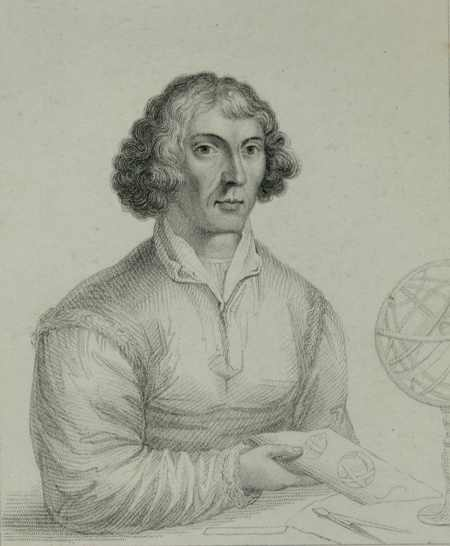
It was noted that even in those days to promote the position of the offices, the support came from the same class of people, blood kinship or a national origin.
It should be emphasized, that the most active support for the post of the canon at Frombork was none other than Andrew Klec of noble lineage. The count did not come here with the same affinity or class origin of Copernicus, and could only be the same of national identity. Following behind this, both were combined in deep friendship.
The discovery of the crypt in the cathedral of Frombork with the remains of Nicolaus Copernicus and genetic studies of hair, found at university of Uppsala allowed not only to establish the true remains but also the determination of the Nicolaus Copernicus genetic code. According to these studies it was determined, that his genetic haplogroup is R1b1b2. In the past the results of genetic tests carried among the Prusai descendants, shown that this is the Haplogroup among the ancient inhabitants of the Pomesania land. The proto Celtic haplogroup that derives from the Gothic peoples, precisely the Gepedoios.
All this does not mean that we should exclude him from the Polish identity, from among Polish society, today it is nothing less than four million are descendants of the Prusai, who never accepted the German enslavement and voluntarily chose orientation of Polish culture.
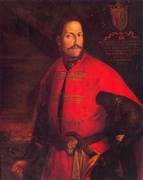
Aleksander Jan Jablonowski
Jablonowski coat of arms Prus III. Family of dukes and counts, derived from Jablonowo of Mazovia.
In the fifteenth century, divided into several lines, having acquired a land in different parts of the Polish state.
In 1743 one of them received the title of duke from the Emperor Charles VII. An important role in the life of the Polish people have played:
Representatives
Anna Jablonowska Leszczynska coat of arms Prus III (1660? 1727)? daughter of Stanislaw Jan Jablonowski and Marianna Kazanowski since 1676 Treasurer Raphael
Leszczynski wife, mother of the Polish king Stanislaw Leszczynski, her granddaughter
Maria Leszczynska from 1725 Queen of France (wife of Louis XV).
Anna Paulina Jablonowska (1728-1800) palatine of Braclav
Joanna Jabłonowska (d. 1744) palatine of Ruthenian
Aleksander Jan Jablonowski (ca. 1670-1723) standard-bearer of the Crown
Anthony Jablonowski (1793-1855) Polish Kingdom vice referent
Anthony Jablonowski (1835-1874) landowner, editor of Rolnik
Antoni Barnaba Jablonowski (1732-1799) governor of Poznan
August Dobrogost Jablonowski (1769-1791) known as the Cossack Prince
Jabłonowska sister Cecilia wife of Aleksander Fredro-called mother of the local people (who died in Lviv, it remains in a crypt under Kroscienko old church). Felicjan Jablonowski (d. 1778) governor koropecki
John Gaetano Jablonowski (1699/1700-1764) governor Bratslavsky
Jan Stanislaw Jablonowski (ca. 1600-1647) swordman of Crown
Jan Stanislaw Jablonowski (1669-1731) governor of Rus
Joseph Jablonowski korsunski governor, inherited his father‘s castle Rochu Odrzykoń and Korczyn in 1796 r
Jozef Aleksander Jablonowski (1711-1777) governor, Novgorod
Jedrzej Jablonowski (d. 1772/73) Castellan Polaniec
Karl Jablonowski (1807-1885) politician
Catherine Ossolinska of Jablonowski from 1 May 1789, the owner of m. Kroscienko Wyzne
Leon Jablonowski (zm.1844) s. Joseph, inherited the town and adjacent Odrzykon
Ludwig Jablonowski (1784-1864) Austrian envoy in Naples
Ludwig Jablonowski (1810-1887) insurgent, diarist
Maciej Jablonowski (1757-1844) prefect of the department of Lublin
Magdalena Jablonowska with Scypionów heiress Odrzykonia wife Rocha
Maximilian Jablonowski (1785-1846) senator-governor
Roch Michael Jablonowski (ca. 1712-1780) Castellan Wislicki
Stanislaw Jablonowski (1799-1878) political activist
Philip Stanislaw Jablonowski (c. 1772-1833) an officer of the Polish Legions
Stanislaw Jan Jablonowski (1634-1702) Great Hetman of the Crown
Stanislaw Pawel Jablonowski (1762-1822) Senator, Castellan, governor
Stanislaw Jablonowski Vincent (1694-1754) governor, Rawa, writer
Sophie from Jablonowski Treasury, since 1828 the wife of Aleksander Fredro
Tadeusz Reytan (Rejtan, Reyten) coat of arms Rejtan (born 20 August 1742 in Hruszowce, d. 8 August 1780 ibid.) - Charles Gorski in work "Pomerania in times of Thirteenyear war" published in 1932, writes Reytan was a Prus, in 1773 member of Novgorod province to the partitioning Poland parliament. His heroic resistance against the confederation of Partitioning Parliament is considered to be one of the last positive sample of application Liberum Veto.
Son of a wealthy landowner Dominic Reytan, Chamberlain Novgorod and Teresa Wołodkowiczowa of Minsk. Brother Michael, an earthly Novgorod writer. Grandson Michael (d. 1706), treasurer of mozyrew, with his father was a client Radziwill family.
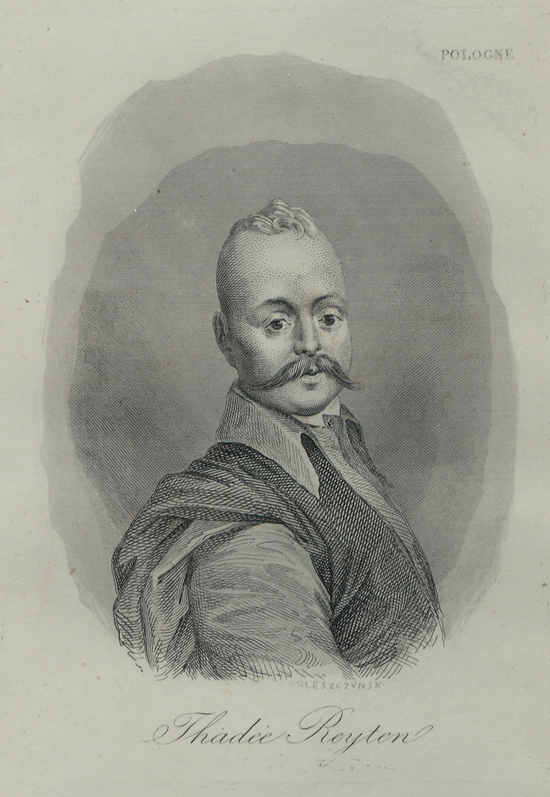
At the first session of the Parliament April 19, 1773, together with Samuel Korsak and Stanislaw Bohuszewicz opposed the establishment of the Diet of the Confederation under the leadership of Adam Poninski, for the approval of the Treaty of the partition of Poland. His position was in line with the instructions received by the election of a deputy to his council in Nowogrodek: Defend all Poland at the risk of lives and the property. Relied on the fact that universals royal parliament convened off and Speaker’s staff alternata was attributed to the Lithuanian province. Respected the rules of strict legalism, not seeking to break the session, the request to put forward as the only choice of Speaker. Resistance of Reytan supported Korsak, the other members of the Lithuanian and some Crown’s (mainly Leczyca). He took a staff in the hands, that was prepared for the Speaker of the Lithuanian Confederation, and sat down on a Marshal stool stating that it may be the same as the self-appointed marshal Poniński, leading him to the resignation of the last of the presidential place. April 20 brought to the city an act of confederation and established the courts, before which Reytan was sued. In the face of the failure of the court action against Reytan confederation sentenced him in absentia judgment (condemned) as a rioter of universal peace, and rebel against the country for criminal penalties and confiscation of goods.
April 21 by order of Poninski the Warsaw city did not accept the manifesto of Reytan and Korsak was against unauthorized bringing an action against Reytan. Partition Powers gave a note demanding parliamentary room empty, but Reytan, Korsak and Bohuszewicz have not left. Trying to keep the audience with members who after the announcement of breaking the session went to the exit, Reytan stood up in the doorway with outspread hands, pleading for the love of the God and the country, fell to the ground crying out to trample his body. Members passed him by lying. April 22 Reytan physically and mentally exhausted after 36 hours stay without food left the parliamentary room. He received a written assurance from MP’s partition powers, that not to be repressed and that condemnation on him will be erased. Reytan went to the patronage of the Prussian General Rupert Scipio von Lentulus, who gave him protection of Prussian Hussars, which later went to his assistance in the capital.
After the Partition Sejm, Rejtan went to Lithuania and according to the family tradition fell into insanity as a result of which 8 August 1780 he committed suicide. Did not set up a family.
Probably took his life in his native Hruszowce by injuring with the glass. The remains of Tadeusz Reytan were discovered during the Second Republic in 1930 in a brick walled grave in a place called "Under the hornbeam", located near the court, which was pointed by local residents. Polish scientists among them Kazimierz Stolyhwo anthropologist and historian Stanisław Lorentz confirmed the authenticity of the fact that the place was of burial and the remains of Tadeusz Reytan. According to historian George Michalski study of the remains in the Hruszowka in 1930 did not lead to a clear conclusion that they are Tadeusz Rejtan’s.
Shortly after his death, spread in Poland form of his worship. Reytan portraits appeared on numerous prints as a symbol of a true patriot. Four-Year Sejm honored the memory of Tadeusz Reytan, concluding it in the following words: "My king, with the consent of the Republic of confederated states, at this time, where the Government of the Republic of restoring forces (...), we have the sensitivity of debt grateful memory of esteemed Pole".
Name Reytan known for wearing patriotic tradition, founded in 1905, VI High School. Tadeusz Reytan’s in Warsaw, and School No. 2. Tadeusz Rejtan’s in Rzeszow.
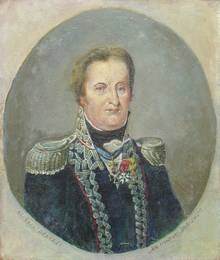
The Prusai descendant from Pomesania, derives from an old, wealthy Dabrowski family with military traditions, settled in Western Pomerania. Until today there is a Dabrowski chapel at Radzyn and their coffin boards presenting portraits are in the parish church of Radzyn.
Jan Henryk Dabrowski is a descendant of an impoverished part of the family settled in Lublin region, with coat of arms "Virgo", as his ancestors at Culm. His ancestor Janusz of Szczuplinek a knight, was a participant in the Battle of Grunwald with the Culmland banner.
Jan Henryk Dabrowski, born August 2, 1755, in the Pierzchowcu by Raba Malopolska died in June 6, 1818, in Winna Gora in Wielkopolska) - Polish general, freemason, initiated into Freemasonry in Italy, the son of Colonel John Michael Dabrowski and Sophia Maria von Lettow. His mother was from a family of German-Scottish origin, but quite Polonised and was kalwin, father adopted service in the Saxon army.
Jan Henryk Dabrowski left Poland in 1766. Service began in 1770 as cadet in the army of Saxony. From 1780 he served as lieutenant in the elector guards in Dresden.
In 1792 he moved to the Polish army, to the rank oft vice brygadier, misinformed in the political relationship, took the oath of allegiance to the Confederation of Targowica.
During the Kosciuszko Insurrection he became famous for defending Warsaw, took a trip to Wielkopolska, where he was promoted to the rank of general - lieutenant. November 18, 1794 he was taken prisoner by the Russians at Radoszyce.
After the collapse of the insurrection did not accept the proposal of service in the Prussian and Russian armies, but in search of Poland reconstruction, first visited the Court of Berlin, then went to Paris in 1796, to the French Directorate, visiting the general Napoleon Bonaparte, and obtained permission from the French Government organization of the Polish Legions in Italy.
Appealed to the Poles. Gen. Dabrowski - Polish lieutenant general authorized to his countrymen for the formation of Polish Legions in Italy. Faithful to the homeland until the last moment, I fought for her freedom under immortal Kosciuszko. Although it fell, but the memory is comforting to us that we spilled our blood for the country of our ancestors, and that we have seen our triumphant banners of Dubienka, Raclawice, Warsaw and Vilnius. Poles! Hope unites us. France would triumph, she fights for the cause of nations. Let us join to weaken its enemies, it provides us shelter, let us expect better destiny for our country, should come under its banners, they are banners of honor and victory.
Formed Polish Legions in Italy, the land that once was the temple of liberty. Already officers and soldiers of your work colleagues and your bravery, are with me, already organized in battalions. Come to me comrades! throw a weapon that you were forced to wear. Let us fight for the common cause of nations, as a matter of freedom of the mighty Bonaparte, the winner of Italy. Trophies of the French Republic are our only hope, her only and her allies, we will regain our dearest land, which we left with tears. The headquarters in Milan on l-st V year Pluviôse Polish general of the French Republic - Lieutenant (-) John Dabrowski .
1797 in Milan, has signed a treaty with the government appointing legions of Lombard. Money which has created legions were those obtained from the sale of land Pierzchów (Municipality Gdow), which previously belonged to his father. And at the head of the First Legion fought in many places, among others. July 3, 1797 at the battle of Reggio, took part in the capture of Rome, May 3, 1798, in the battle over Trebbia (17-19 June 1799), where he fought against Italian opponents of Bonaparte, between others with Suvorov, looked helplessly at the annihilation of the Legions. In the Apennines was wounded. After the Battle of Marengo on the command of Bonaparte created the two new legions. After the Peace of Amiens went to the service of the Cisalpine Republic as Major-General.
Since 1802 remained in the service on Italian soil. There he joined the Freemasons, and was adept 29 degree Scottish Rite.
November 3, 1806, after winning the battle of Jena and the invasion of French troops on the Polish territories, issued together with Wybicki in Poznan, a proclamation calling for the organization of uprising in Greater Poland (editor in chief was Wybicki because Dabrowski poorly ruled the Polish language . During the new campaign fought at Grudziądz, Gdansk, Tczew and Friedland, where he was wounded during the assault. March 6, 1808 he was awarded the Commander‘s Cross of the Order of Virtuti Military.
He participated in the 1809 campaign, giving the command strategy of the Polish troops, trips to Galicia, fought victoriously with Austrians at Radzymin and Leczyca. In 1812 he commanded one of three Polish divisions of the fifth corps, where he distinguished himself in Mogilev, Borisov. 26 November in the battle of Berezina was seriously injured - during the defense of one of two bridges on Berezyna. In 1813 he fought under Teltawem, Großbeeren, Juterbogk and the Battle of Leipzig. After the death of Prince Jozef Poniatowski became commander of the army of the Warsaw Duchy, which, in practice, was more than five thousand Polish soldiers remaining at the side of Napoleon.
After the fall of Napoleon, he returned to Warsaw and became the head of the Organizing Committee of the Military, whose aim was to organize the army of the newly created Polish Kingdom, became a general of cavalery. He was a senator and provincial governor. For health reasons, withdrew from public affairs and settled in his estate in Winna Gora in the Grand Duchy of Poznan where he died on June 6, 1818 year. He was buried in the local church, and from the 1863 year lies in a sarcophagus in a side chapel. Urn with his heart, was initially kept in the palace at Winna Gora, Krakow and later at the Poznan City Hall, and since 1997 in the crypt in the basement of Eminent Wielkopolska church of st. Adalbert in Poznan.
General Dabrowski was generally underestimated by his contemporaries, known as "German", "condottieri", “Bernard Weimar”, but in recent historiography lived to see a fair assessment as a steadfast, full of energy and dedication of a patriot, and reviver of the Polish military, general who has a great enormous talent as a leader and organizer.
For the Dabrawski Legions Wybicki, soldier and poet, in 1797 wrote The Song of the Polish Legions in Italy, which from the beginning was adopted with applause by the army of their general, was called Mazurka Dabrowski. After Poland regained its independence, became the national anthem. Left a manuscript released later as diaries the Journey to Greater Poland, in 1794.
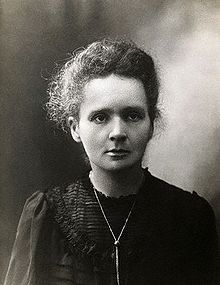
Born November 7, 1867
Warsaw, Poland
She died on July 4, 1934
Passy, France
TWICE NOBEL PRIZE WINNER
The undisputed origin of Sklodowski family, is that their ancestors are from Prusai land. It is demonstrated by the genetic tests done by the living family descendant. Also, archives material allows to confirm it. Sklodo whether Ausklode was a popular name among the Prusai. Part of the family Sklodowski used the nickname Windyki. Windyk son of Obizor, Prince of Prusai, from whom derive family of Nienaltowscy. Nests of these families: Sklody and Nienalty next to each other, share a common history. Were founded after the Grunwald victory. Settled there the descendants of the Prusai knights who escaped from the East Prussia Teutonic aggression. Initially, after 1243 settled in the land between Czersk, Grojec and Tarczyn. After Grunwald victory, using the privileges of the princes of Mazovia, moved to the ground, of Nurski, establishing Sklody and Nienalty.
Sklodowski were legitimated by Heroldy of Polish Kingdom. Presented false identification of Sklodowski Seweryn, heir of Rzasnik with no descendants. Ascribed Dolega coat of arms. Heroldii practice was to assign an unknown family crest, coat of arms of the family of a similar or identical name. Sklodowski assigned Dolega coat of arms, which is Sklotowscy stamping. Another part of the family Sklodowski also be inferred from a false crest Jastrzębiec ancestor. Genuine coat of arms of Sklodowski remains unknown, although they were probably the Prus coat of arms. A similar situation occurred in Nienaltowski assigned Nalecz coat of arms, while in 1500 it was the Prus coat of arms .
Family of Maria Sklodowska:
John Sklodowska-Paluch de Sklody-Piotrowice
before 1726
And
Jacob before 1759
1740 Kunigunde Godlewska
And
Jan * 1743 1803
Barbara Nowakowska
And
Urban * 1771 before 1832
And
Jozef * 1804 1882
1832 Salomea Sagtynska
And
Wladyslaw * 1832 1902
1860 Marianna Boguska
And
Maria-Salomea * 1867 1934
1895 Pierre Curie
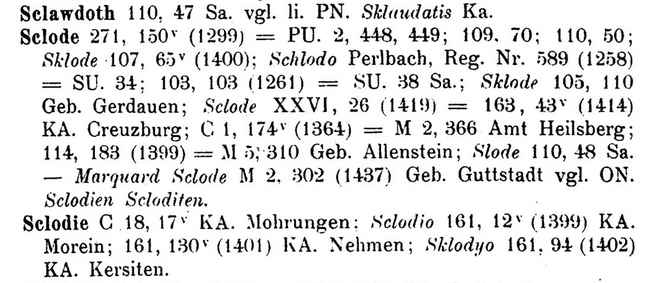
Trautmann. Dictionary of Prusai names.
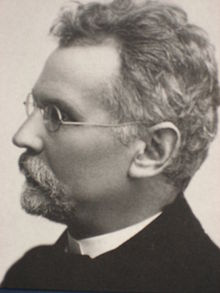
Born in Hrubieszow (exactly Zabeczu, today Zabcze) in the Lublin family of Anthony Glowacki, treasurer of the court, noble roots (his later literary pseudonym Alexander Glowacki drew the name of the ancestral coat of arms Prus I), and mother Trembińska Apolonia. Orphaned at age 3 by his mother, and at the age of 9 by his father, came under the care of his grandmother Marcjanna Trembinska living in Pulawy. After her death, lived with his aunt Domicela Trembińska Olszewska in Lublin, where he attended the School District of Real (for 4 years from the year 1857). Then he found himself in Siedlce (1861) under the care of the older brother of 13 years Leon Glowacki, working as a teacher of history. Together with his brother moved in 1862 to Kielce, where he enrolled in school.
Under the influence of older brother Leon, an activist fraction of “red“, Aleksander Glowacki in 1863, 16 years of age, interrupted his education in high school and took part in the uprising. September 1 was wounded during clashes in the village Bialka, distant about 4 km from Siedlce. He was taken prisoner by the Russians, however, due to young age and through the intercession of his aunt, after leaving the hospital he was allowed to return to Lublin and live with the family. January 10, 1864 was published in the “Sunday Courier“ his poem “The Pegasus”, signed name John in Oil .
January 20, 1864 Glowacki was arrested for taking part in the uprising. From January to April was in prison at the Lublin Castle. Military court deprived him of nobility, and gave him into the care of his uncle Clement Olszewski, because brother Leon Glowacki was suffering from an incurable mental illness. After his release from prison, Alexander continued his studies at school in Lublin, which eventually graduated June 30, 1866 year with excellent grade. He was interested in studying in St. Petersburg, which could not afford due to financial reasons.
So in October, he joined the School in Warsaw at the Faculty of Mathematics and Physics. In Warsaw, unaided, to earn his studies as a tutor, what is not, however, brought substantial profits. In his spare time he wrote letters to the Christmas Courier, in which still signed name John in Oil. Material difficulties meant that while in the third year he was forced to interrupt his studies (1869). He then moved to Pulawy, where he enrolled at the Faculty of Forestry Institute of Farming and Forestry, however, as early as September 1870 he returned to Warsaw, he came into conflict with one of the Russian professors.
He tried various occupations, through which he could earn a living, was, photographer, a street orator, locksmith factory Lilpopa and Rau. In 1871 he translated and wrote a summary of the work of English philosopher John Stuart Mill‘s Logic. For the first time he tried his abilities as a journalist.
Journalism and belletristic
Coat of arms “Prus“ the debut release of Aleksander Glowacki be considered as set out in 22 issue of the positivist journal Home Guardian “of 29 May 1872 years article our social sins. That same year in the magazine “Niva“ was published his first article popular science about electricity. On the pages of “Home Caretaker“ in 1872 also appeared in columns Glowacki Letters from the old camp, which the author signed first name Boleslaw Prus. Aleksander Glowacki since then decided to use his real name to sign only the major articles.
Glowacki also began working with satirical writings of “Fly“ (since 1873) and “Thorns“ (in 1874), for which he wrote sketches satirize society and many humoresque (the most famous of which is Trouble Grandma and Bric and Brac). Also in “Niwa“ appeared to have his feuilleton current affairs. All publications published in the newspapers, due to the entertaining nature of the article, the author signed the name of Prus.
In the newspaper Warsaw Courier, began to publish travel post cards (columns and reports written during his numerous trips in the country) and the weekly Chronicle that Prus brought the greatest popularity. These articles touched on political, social and moral topics, attracting readers.
Career of columnist in several magazines, which initially treated the secondary way (had a steady job in bank), brought to Prus considerable revenue and provided temporary financial stability. This allowed him to meet plans for marriage. January 14, 1875 Aleksander Glowacki married Octavia Trembinska, a distant cousin of the mother. Wife watched from that time on his health (Prus suffered from agoraphobia - the disease was due to stay in prison). Couple had never their own offspring, and their adopted son Emil at age 18 committed suicide because of unhappy love.
In 1876 Prus began working with the magazine “Athenaeum“ (which he wrote mainly monthly Chronicles), while in 1877 with the weekly “News“. In 1882 he became Editor of the newspaper. Posted on its pages Sketch of the controversial document with the current development of society. At the same time grew more and more of his belletristic activity. In 1879 Prus entered a mature period of his novel work, which lasted until 1885. However, never gave up journalism. In 1881 he became involved with the “Weekly Illustrated, and in 1887 with “the daily Courier.“ Most of his short stories, novellas, and later novel was first published in a newspaper, with whom he has worked.
When in 1883, led by Prus magazine “News“ fell, the writer again hit financial problems. He then devoted himself mainly work on novels. Prus also established a permanent cooperation with issued in St. Petersburg, Polish weekly
“Country“, for which he wrote Correspondence from Warsaw. In 1885, Prus, he met renowned painter Stanislaw Witkiewicz, who was a co-editor of the magazine “The Wanderer.“ Thanks to the knowledge of Witkiewicz, Prus for a short time was connected with the “The Wanderer“, the journal which published several novels and short stories, and the first in Polish literature naturalistic novel - assignment.
Private Life
In 1882 Prus for the first time he went on vacation to the spa town of Naleczow. Since then, the town which was his favorite place of rest, which he visited over the next 30 years, or until his death. Today the museum in Naleczow is of Boleslaw Prus, which is a part of the Malachowski Palace.
In 1892, he appeared as a witness at the wedding of Stefan Zeromski with Rodkiewicz Octavia. Prus was a friend of the young couple, whom he met during one of trips to Naleczow, cared for the novice writer.
In 1895, Prus went on his only foreign trip to Germany, Switzerland and France. The writer visited include Berlin, Dresden, Karlsbad, Raperswil (where he met with Zeromski) and Paris.
Last years
Tomb of Boleslaw Prus at Powazki Cemetery in Warsaw. By the end of his life, thanks to a lively journalistic activities (mainly in the years 1904-1905) Prus became a great authority in the public eye. Perceived him as an exemplary representative of attitudes in line with the objectives of community work and utilitarian. By the end of life writer willingly participated in social actions and include sponsorship of many initiatives and projects. He was the guardian of orphans of the Charitable Society, took part in the company anticipating a seminar for teachers in the People‘s Ursynow, was president of the Association of Courses for Adult illiterates. In his will, founded scholarships for talented children from poor rural families. In the last period of life (certainly in 1911) came to rest to Milanowek.
He died of a heart attack at age 64. His funeral, which took place on 22 May 1912, gathered crowds of admirers of the writer‘s talent and turned into a great manifestation of the inhabitants of Warsaw. Prus was buried in the cemetery at Powązki, where the memorial, made by Stanislaw Jackowski, is the inscription “Heart of hearts“.
Creativity
Boleslaw Prus‘s prose works belongs to the greatest achievements of Polish literature. The closest is the work of such writers as Charles Dickens and Anton Chekhov.
Initially, Prus presented the positivist mainstream, then chose a realistic direction.
The theme of his early work was the presentation of social injustice in contrast to the barrenness of life in their closed world of the gentry (souls in bondage, Anielka).
At that time, Prus was a witness to the tragedy of human fate and social injustice, caused in large part of an early capitalism impacting the economy (returning wave). Occurring phenomenon of socio-economy of Prus yielded to his art analysis and evaluation.
His first novel was The facility (1885-1886) - novel initially naturalistic appearing in the journal “Wanderer“. Then it was an epic panorama of contemporary Warsaw in the years 1878-1879 - a novel Lalka (1887-1889 in “The Daily Courier“ published as a book 1890). Prus also wrote a novel socio-moral Emancipated (1890-1893 in “The Daily Courier“ published as a book 1894). In his only historical novel, Pharaoh (1895-1896 in the “Weekly Illustrated“ published as a book 1897) presented, against the background of the history of ancient Egypt, the mechanisms of power, state and society. Pharaoh, as a political novel, was the favorite book of Joseph Stalin, some later readers of the English translation of the fate of its protagonist Ramses XIII recalled the tragic death of U.S. President John F. Kennedy. Then in 1909, has yet another novel, Children (1908 in the “Weekly Illustrated“ published as a book 1909), which criticized the Russian Revolution of 1905. The death of the writer stopped working on the last, unfinished novel Transformations (1911-1912 in the “Illustrated Weekly“).
In the years 1953-1970 was published in 21 volumes, edition of the chronicles.
B. Prus monument in Warsaw, in the garden next to the Hotel Bristol
B. Prus monument in his hometown Hrubieszow
 www.Prusowie.pl - polski
www.Prusowie.pl - polski